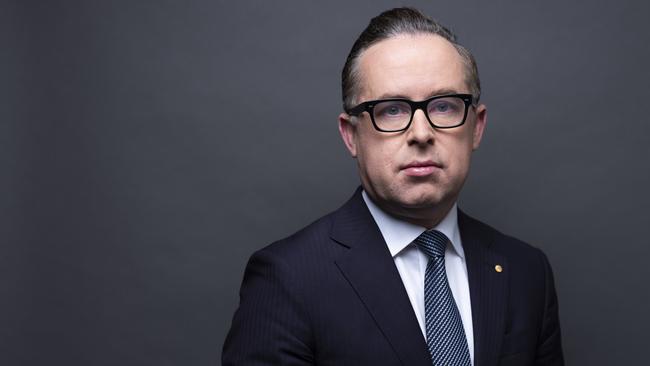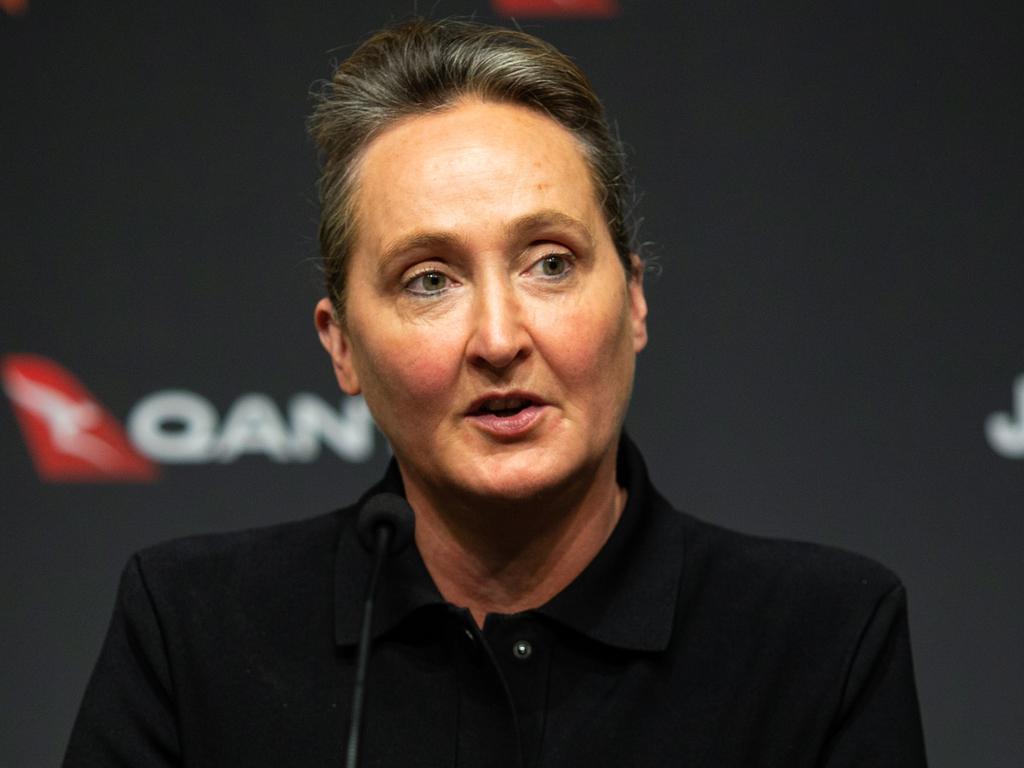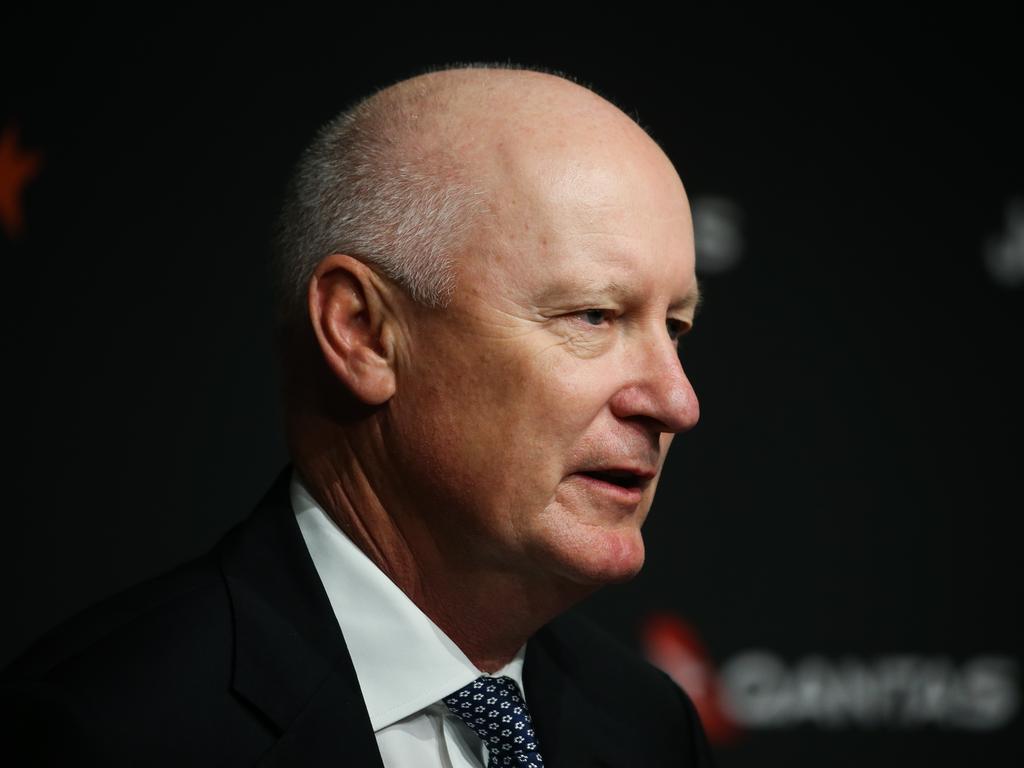Alan Joyce, a man of contradictions who stayed too long to be remembered kindly
Alan Joyce knew his time was up but waited until Monday to tell the Qantas board he would leave early and let the airline move on.

It should have been a sign. Alan Joyce delighting in ABBA holograms performing in London, while back in Australia his airline Qantas was adrift in lost bags, cancelled flights and unanswered calls from stranded customers.
Nero fiddles while Rome burns.
Joyce jetted off for a European jaunt last year, but had to cut his trip short as fury mounted over footage of mountains of misplaced bags, stranded school-holiday passengers, and unanswered phone calls by customers. The public didn’t even know he had gone.
Now Joyce has just cut short another trip: his tenure as chief executive of Qantas, as fury mounts once more, this time over revelations about axing unused travel credits, selling seats on already cancelled flights, a new $24m pay cheque, and convincing the Albanese government to keep restricting competition from the likes of Qatar.
“If you are arrogant you are not a good leader,” said Joyce in an interview with The Australian last year.
Perhaps that thought has swung back to him recently. Joyce sought counsel from a former mentor last week on whether it would be best for Qantas if he left early, before advising chairman Richard Goyder and then asking for the special board meeting held at 8:30 on Monday evening.
He leaves with a severely tarnished reputation, two months earlier than planned but late enough to pocket an extra $24m pay cheque. He leaves a company whose brand is in tatters, picking up the “award” for most complained about company for the second year running from the competition regulator, but loved by the market after posting a record $2.47bn profit.
Among signs Joyce and the Qantas board should have picked up was that it doesn’t sit well to be so public about having fun when others sit stranded in terminals; nor does raking in double-digit millions in pay cheques while illegally laying off staff; or dismissing the need for greater competition while charging airfares 60-plus per cent above Covid rates. And that’s before the questions about why the Prime Minister’s son received membership to the exclusive Chairman’s Lounge.
It seems Joyce and the board stopped reading the room.
Perhaps Joyce had even stopped reading himself. He has become a man of contrasts since evolving from a socks-and-sandals casual Irishman over the past 15 years to the refined “finished product” he is now.
For a self-confessed Labor person, Joyce has seemed at times singularly focused on breaking union strangleholds within Qantas, and has cut staff by more than 36 per cent since taking the reins.
Joyce was raised in the working-class Dublin suburb of Tallaght, and his grandfather was part of the union movement involved in setting up the Irish Congress of Trade Unions.
It was equal parts shocking and impressive then when in 2011 he shut down Qantas rather than bow to pressure from three of its 14 unions on wage increases as the airline fought to stem rising costs as revenues slumped.
His decision during Covid to fire the airline’s baggage handlers and outsource those roles did not land so well. Not only was the move declared illegal, the airline’s failure to get its outsourcing arrangements working – back when Joyce was joyously watching avatars of ABBA in London – played a strong role in destroying the public’s faith in the nation’s once favourite company.
And while the forthright CEO has driven Qantas to be outspoken on issues such as marriage equality and the Indigenous voice to parliament, one former senior executive says Joyce never really liked the public aspect of the role.
“He told me the most enjoyable job he’d had was setting up and then running Jetstar – a close-knit team, separate from the Mascot mothership being down in Melbourne, and getting to be the boss who could take the team to the pub after work and no one knew who you were,” said the executive who did not wish to be named. “He said as Qantas CEO all that changed overnight and he never had that kind of freedom again.”
Former Qantas chief financial officer Peter Gregg said it was important to remember in the swirl of negative publicity that Joyce managed to achieve a great deal of positives as well. “He could have balanced the customers better in his pursuit of financial success but that is easy to say in hindsight,” he said. “Now the emperor is gone he should be regarded for the positive things he has done as well as the negative things.”
First and foremost being managing the airline through Covid, said Mr Gregg. “A lot of airlines went bankrupt. Qantas suffered some large losses coming back together. They had to get those planes back in the sky and that was a more difficult exercise than a lot of people realised.
“Then there was a surge in demand and capacity wasn’t there.”
Those close to Joyce said he loves to be liked, but many of his decisions left those within the airline on edge.
When Qantas announced a 2016-17 cost-saving program that involved axing 5000 jobs, the original internal figure was close to half of that and came after every accountant and head of finance had scrounged around for every conceivable cut.
Without any plan on how you got there, Joyce told us in one meeting to “double it,” an unnamed staffer said. “He is incredibly strong-willed, incredibly decisive, and very willing to make very unpopular choices when he believes they are right … but along the way he lost the public and he lost a lot of staff support because he almost always went in favour of financial gain over a more balanced set of considerations.”
Leigh Clifford, chairman at Qantas when Joyce rose from Jetstar CEO to boss of the whole company, pushes back hard on negative publicity now around Joyce. “It’s a pile on,” he said.
“I’m sure Alan has some regrets about things he could have done differently, but when you look at the 15 years he’s been there, I think he’s done a very good job to establish the competitiveness of Qantas. It’s a tough game in the airline industry.”
It certainly became a tough game for Joyce in the eye of the public once the airline started flying properly again post-Covid, after ratcheting up $7bn in losses.
Now the airline is bursting with cash, the public is unhappy that customer service and pricing haven’t improved as they should.
As a man who has earned north of $125m from the airline since he started running it, Joyce can do little to complain, even when his $19m house purchase in Sydney’s Mosman is splashed in the papers.
“Do you think the solution is to live in a cave?” he asked this paper last year. As he steps down early to try to protect the airline from more bad publicity of his doing, he will have time to do that.






To join the conversation, please log in. Don't have an account? Register
Join the conversation, you are commenting as Logout